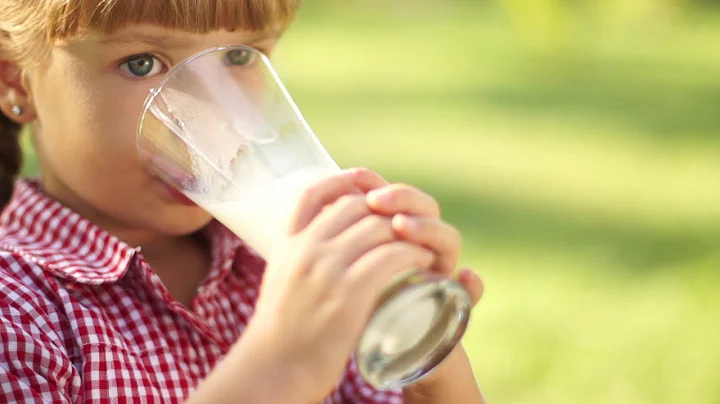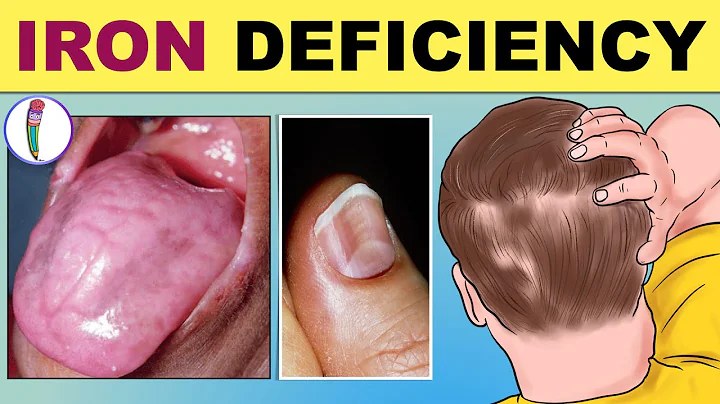Iron deficiency is more common in children under 5 years old. For children, growth is very rapid at this stage and the demand for iron is relatively strong.
1. Do all children need to supplement iron supplement ?
Generally, for healthy full-term infants who are exclusively breastfed, the child's own iron reserves can last for 4-6 months. When the iron reserves are almost depleted, it is recommended that the mother start supplementing the child with iron supplements after the child is 4 months old. (Elemental iron 1mg/kg/day, the maximum daily amount does not exceed 15mg) until the child can consume sufficient iron-rich complementary foods (such as high-iron rice noodles, red meat puree, etc.).
Premature children have less iron reserves at birth. For premature infants who are not anemic and exclusively breastfed, preventive iron supplementation (elemental iron 2-4 mg/kg·day, maximum daily) can be started from 2 weeks after birth. Large amounts not exceeding 15mg). Preventive iron supplementation is provided until the child is 1 year old. After the child is 1 year old, it will be decided whether to continue based on the dietary situation of the child.
Children diagnosed with iron deficiency anemia will need a larger dose of iron supplement (usually elemental iron 3-6mg/kg/day).

2. What are the characteristics of common iron supplements on the market?
Common iron preparations on the market mainly include inorganic iron preparations and organic iron preparations. From an acceptable level, organic iron preparations have no metallic taste, have fewer gastrointestinal adverse reactions, and are easier for children to accept. From a price point of view, inorganic iron supplements are cheaper.
① Inorganic iron: mainly refers to ferrous sulfate .
The iron in ferrous sulfate exists in the form of Fe2+, which is easier to absorb than elemental iron and Fe3+. However, after taking inorganic iron, it will quickly dissociate in the stomach, causing severe gastrointestinal irritation, causing nausea, vomiting, abdominal pain, constipation, etc. symptom.

②Organic iron: including small molecule organic matter and macromolecular complexes.
small molecule organic components: including ferrous lactate , ferrous fumarate , ferrous gluconate .
Compared with inorganic iron, organic iron avoids the instantaneous concentration of drugs in the gastrointestinal tract and is less irritating. However, because it is ferrous salt , its properties are relatively unstable and will be affected by many factors.
macromolecular complex components: mainly iron dextran , amino acid complex iron, polysaccharide iron complex, etc. Iron supplements with these as the main components usually have no metallic odor and have few gastrointestinal adverse reactions, but are expensive Relatively high.

3. How should parents choose iron supplements for their children?
① Choose the appropriate dosage form: According to the baby's swallowing situation, choose the dosage form that is suitable for the child. For example, iron dextran dispersible tablets are also a very good choice.
Iron dextran is a third-generation oral iron drug. It contains iron complex and dextran as the main components. It is a soluble iron element. After the drug enters the human body, iron dextran can effectively supplement the iron needed in the patient's blood. elements, which are beneficial to alleviating clinical symptoms.
Relevant research shows that iron dextran dispersible tablets are highly soluble and easier to be absorbed by the human body. Selecting different dosages according to the degree of anemia can not only ensure the safety of medication, but also fully supplement the iron content, and the effect is obvious. Of course, oral liquids, drops, granules, etc. are also good.

② Choose an iron supplement with simple ingredients: It is best to choose one that only contains iron compounds. Avoid iron supplements with unknown or very low iron content.
③Depending on the child's acceptance of iron supplements: Because inorganic iron such as ferrous sulfate has a strong metallic taste, if the child does not like it and refuses to take it, you can consider switching to organic iron.

Children are more prone to anemia, and parents must also pay attention. If the iron obtained from food is not enough, they must give their children appropriate iron supplements.
For healthy children 6 months and above, there is no need for regular iron supplementation. Adding more meat food daily can ensure the iron intake.
Reference:
[1] Zhang Yu. Clinical efficacy and safety of iron dextran dispersible tablets in the treatment of pregnancy complicated with iron deficiency anemia [J]. Journal of Rational Clinical Drug Use, 2020, 13(21): 127-128.
[ 2] Wang Fanghai, Zhao Wei, Chen Jianfang, Tang Weifang, Qin Yong. Research progress on iron supplements [J]. Advances in Pharmacy, 2016, 40(09): 680-688.







![Iron Deficiency in Toddlers (1-3 years): [DO THIS & STOP WORRYING] | Dr. Raj - DayDayNews](https://i.ytimg.com/vi/kBEFUF4R4dU/hq720.jpg?sqp=-oaymwEcCNAFEJQDSFXyq4qpAw4IARUAAIhCGAFwAcABBg==&rs=AOn4CLBD_7Zsc6Mj5Zn5iDFjXCdh6nyaQQ)













